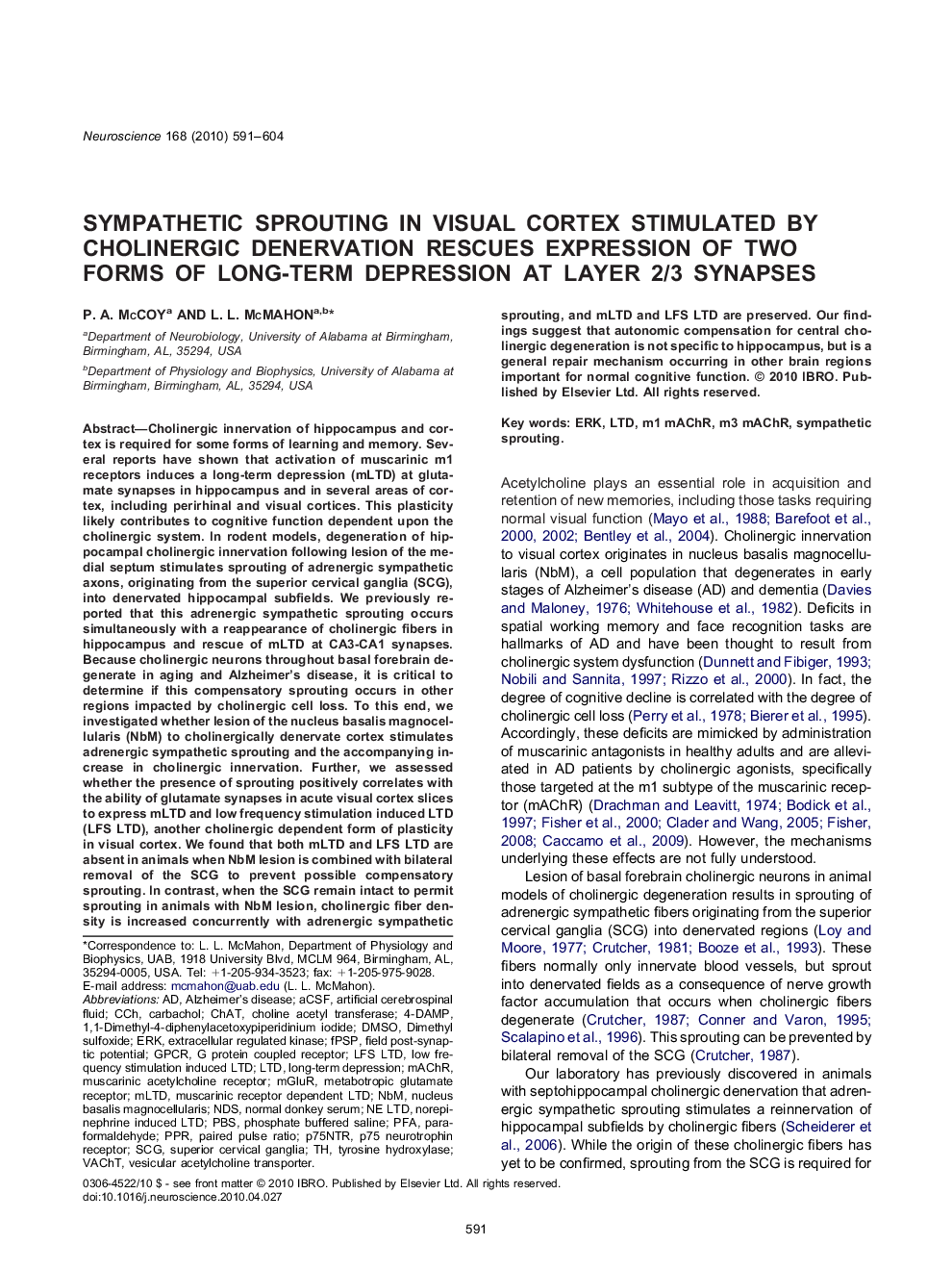| Article ID | Journal | Published Year | Pages | File Type |
|---|---|---|---|---|
| 4339477 | Neuroscience | 2010 | 14 Pages |
Cholinergic innervation of hippocampus and cortex is required for some forms of learning and memory. Several reports have shown that activation of muscarinic m1 receptors induces a long-term depression (mLTD) at glutamate synapses in hippocampus and in several areas of cortex, including perirhinal and visual cortices. This plasticity likely contributes to cognitive function dependent upon the cholinergic system. In rodent models, degeneration of hippocampal cholinergic innervation following lesion of the medial septum stimulates sprouting of adrenergic sympathetic axons, originating from the superior cervical ganglia (SCG), into denervated hippocampal subfields. We previously reported that this adrenergic sympathetic sprouting occurs simultaneously with a reappearance of cholinergic fibers in hippocampus and rescue of mLTD at CA3-CA1 synapses. Because cholinergic neurons throughout basal forebrain degenerate in aging and Alzheimer's disease, it is critical to determine if this compensatory sprouting occurs in other regions impacted by cholinergic cell loss. To this end, we investigated whether lesion of the nucleus basalis magnocellularis (NbM) to cholinergically denervate cortex stimulates adrenergic sympathetic sprouting and the accompanying increase in cholinergic innervation. Further, we assessed whether the presence of sprouting positively correlates with the ability of glutamate synapses in acute visual cortex slices to express mLTD and low frequency stimulation induced LTD (LFS LTD), another cholinergic dependent form of plasticity in visual cortex. We found that both mLTD and LFS LTD are absent in animals when NbM lesion is combined with bilateral removal of the SCG to prevent possible compensatory sprouting. In contrast, when the SCG remain intact to permit sprouting in animals with NbM lesion, cholinergic fiber density is increased concurrently with adrenergic sympathetic sprouting, and mLTD and LFS LTD are preserved. Our findings suggest that autonomic compensation for central cholinergic degeneration is not specific to hippocampus, but is a general repair mechanism occurring in other brain regions important for normal cognitive function.
